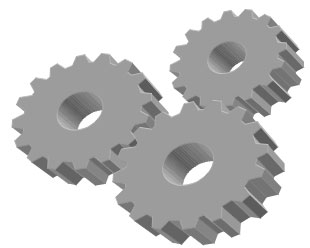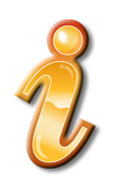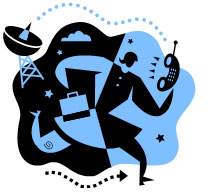
ETHICAL LEADERSHIP WORKSHOPS

The Ethical Leadership Workshops are presented by Desmond Berghofer and Geraldine Schwartz through Creative Learning International (CLI), the parent company of the Institute for Ethical Leadership. Each workshop is target-designed to the needs and expectations of the client. The process begins with an in-depth discussion with client leaders to determine possible workshop features and the leaders' desired outcomes. The particular two-day workshop described below is typical of formats chosen by clients who want to introduce the knowledge and skills of ethical leadership to their team. The particular topics chosen for dialogue and discussion are always cued to the current needs and interests of the client.
Creative Learning International is particularly interested in using "train-the-trainer models" as a follow through to the initial workshop, which can be considered as Days 1 and 2 of a five-day Facilitator Training program also described on this website.
Workshop, Day 1: Creating an Ethical Filter

The workshop begins with two keynote presentations by the Principals. Dr. Berghofer's presentation is entitled "Ethical Leadership: The Larger World Picture" and puts ethical leadership in the context of historical ethical and scientific knowledge and its implications for modern society. Dr. Schwartz's presentation is entitled "Focus on Ethical Relationships: The New Yardstick for Personal, Business, Corporate and Community Success." This presentation links ethical behaviour to Emotional and Social Intelligence and to health and personal benefits for individuals and organizations. As well as addressing general circumstances, these presentations are always tailored to the particular audience addressed. They are continuously updated by new findings in science and by developments in the unfolding world and local scene.
The remainder of the workshop is interactive, providing many opportunities for all participants to be fully engaged. Personal experience in working with each of three Ethical Leadership Scales constitutes a key feature. This is followed by small group and plenary discussion of the meaning and relevance of these Scales to the participants' immediate and future situation.
On Day 1 the particular emphasis is on the Ethical Competence Scale. This allows the team/group to emerge with a new ethical filter against which choices and decisions can now be considered. Also on Day 1 the CLI hallmark tool for generating fruitful creative discussion is used and played as a game called "Hold Fire and Think." This creative learning tool enables the group to experience a creative flow of ideas that can affect the culture of how the organization carries on its daily business from an ethical perspective. The tool provides new language and understanding on the nature and benefits of creative thinking in a world subject to the need for adaptation to continuous change.
Hold Fire and Think is a robust tool, used by CLI for almost two decades with business and community clients. The topics on which the tool is used are integral to the group itself and allow participants to draw on the new knowledge learned form the keynote presentations. Fun and easy to learn, the tool raises the energy for participation in the small and larger group. Clients often report using the language and technique in the days immediately following a workshop in productive and useful ways. It is always a favourite of the participants.
At the end of the first day participants emerge inspired and energized by new information and learning that spans 2500 years of ethical teaching and relates it to new findings in science. The benefits and practice of ethical behaviour at home and at work are clearly understood. Participants are left with print copies of the power point presentations, the key teaching principles and the description of the Hold Fire and Think game.
Workshop, Day 2: Taking the Lead


On the second day of the workshop the focus is directly on ethical leadership. The information presented on Day 1 is reviewed along with meaningful dialogue on its relevance to the participants' own situation. All of the tools, new concepts and language are used continuously throughout Day 2 in order to anchor the knowledge and skills as deeply as possible. In this way the participants emerge from the workshop with their new knowledge sufficiently developed and integrated so they can put it to use immediately.
On Day 2 participants work with the Ethical Leadership Scale and the Ethical Organization Scale individually and in small and large group discussion. They not only get a measure of their own ethical leadership competence but also have the opportunity to consider ethical and leadership qualities in the context of their own constituency.
On the afternoon of Day 2 (the fourth quarter of the workshop) participants are engaged in a visioning experience that allows them to make specific plans on how they will use their new knowledge to create a new ethical future for themselves and their organizations.
Participants emerge from the second day primed with new information, new skills and a preliminary outline of a plan of action on next steps.
The Workshop Report


When an organization's leaders are interested in using the dialogue and discussion that took place in the workshop to prime their future work, the workshop discussions are recorded and a report prepared by the Principals. This provides a value added component to the two days of learning and dialogue in that the discussions can become part of future plans and projects to raise the ethical competence in the organization.
Follow Through


Since the work of CLI is target designed to the client's needs and expectations, follow through can take any form, including half day workshops, participation in meetings and/or annual conferences or team or individual consultation. It is useful to plan this follow through as part of the individual program design.
Keynote Addresses



Both Principals individually and together are experienced dynamic and articulate speakers. They have a national and international reputation for making presentations at conferences and meetings. A few examples of titles are provided on this website. All keynote addresses are specifically targeted to the client's needs and can accommodate any format. The Principals are especially interested in raising awareness among leaders in every field about the value of practicing ethical leadership, both for the organization and the larger community. They are also prepared to do mini-workshops within the conference format to accommodate particular groups who value dialogue and interactive experience on the topic of ethical leadership within their organization, group or profession.
Drs. Berghofer and Schwartz are particularly interested in moving the knowledge and practice of ethical leadership into the organizations at large using the train-the-trainer model. This approach is described in detail under Facilitator Training and the Living Legacy Project.